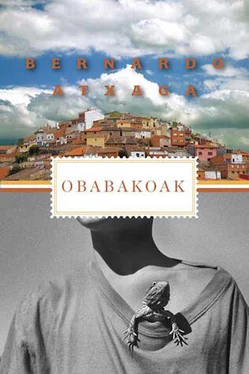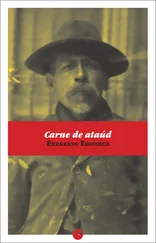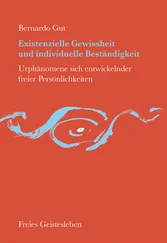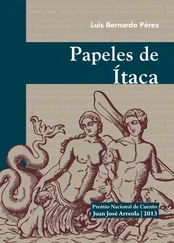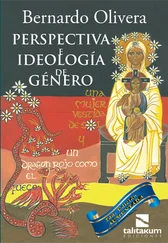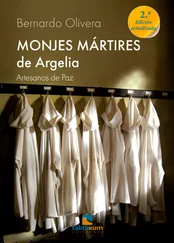Bernardo Atxaga - Obabakoak
Здесь есть возможность читать онлайн «Bernardo Atxaga - Obabakoak» весь текст электронной книги совершенно бесплатно (целиком полную версию без сокращений). В некоторых случаях можно слушать аудио, скачать через торрент в формате fb2 и присутствует краткое содержание. Год выпуска: 2010, Издательство: Graywolf Press, Жанр: Современная проза, на английском языке. Описание произведения, (предисловие) а так же отзывы посетителей доступны на портале библиотеки ЛибКат.
- Название:Obabakoak
- Автор:
- Издательство:Graywolf Press
- Жанр:
- Год:2010
- ISBN:нет данных
- Рейтинг книги:3 / 5. Голосов: 1
-
Избранное:Добавить в избранное
- Отзывы:
-
Ваша оценка:
- 60
- 1
- 2
- 3
- 4
- 5
Obabakoak: краткое содержание, описание и аннотация
Предлагаем к чтению аннотацию, описание, краткое содержание или предисловие (зависит от того, что написал сам автор книги «Obabakoak»). Если вы не нашли необходимую информацию о книге — напишите в комментариях, мы постараемся отыскать её.
Obabakoak
The Observer
Obabakoak — читать онлайн бесплатно полную книгу (весь текст) целиком
Ниже представлен текст книги, разбитый по страницам. Система сохранения места последней прочитанной страницы, позволяет с удобством читать онлайн бесплатно книгу «Obabakoak», без необходимости каждый раз заново искать на чём Вы остановились. Поставьте закладку, и сможете в любой момент перейти на страницу, на которой закончили чтение.
Интервал:
Закладка:
“They seem so happy!” exclaimed Laura.
“Well, we’re headed in quite a different direction,” smiled César Calvo, getting into the canoe.
“To La Atalaya!” I said in a tone of voice intended to be carefree. But the answer I had stumbled upon while we rowed down the Unine continued to rankle; my voice failed me and I merely succeeded in sounding lugubrious.
To avoid the risk of colliding with the many uprooted trees left behind by the previous months of flooding, we proceeded very slowly down the Ucayali. By the time we reached La Atalaya, it was nearly night.
A little later, I was sitting in the same place Laura had sat before we left for the Unine, the same place from which she had looked out at the jungle and, hearing the song of the ayaymaman, had wept. I could find no peace there either.
The wise man of Iquitos came out of the shack and sat down beside me.
“Yes, I’m thinking about him too,” he said.
“About Pullcapa Ayumpari you mean?”
“Yes.”
“Thomas Sheldon,” I said sadly.
César Calvo nodded.
“I first became suspicious the day he spared your life. A true Ashaninka could never have done that. That’s why I went to thank him this morning, because I wanted to see his face. The colored clay can hide a pale skin, but not the eyes. And, of course, his eyes were blue, the typical blue eyes of an Englishman.”
“But how did he come to be shirimpiare ?”
“Well, he is a doctor. He probably arrived at the village, taught the previous shirimpiare a few things and then the latter no doubt adopted him as his son and named him his successor. I’m sure that’s what must have happened.”
“There’s just one thing I’m not sure about, César. I don’t know if I should tell Laura. And I’m sure you know why.”
Then we heard a cough. Someone wanted to warn us of their presence.
“César’s right. Thomas cured the old shirimpiare, who then gave up his post to him. He tells me so in this letter I’ve just found among my clothes.”
Laura was standing behind us, holding a piece of paper in her hand.
“I thought you were asleep!” I exclaimed.
“I heard everything,” said Laura, looking me in the eyes.
For a moment the three of us were silent.
“What should we call you from now on?” I asked at last.
“By my maiden name. Laura Sligo.”
Then she spoke much more directly than I had dared to.
“Thomas tells me you’re in love with me. Is that true? Don’t forget we have César Calvo here as our witness.”
A month later the two of us were in Dublin.
Finis coronat opus
FINIS CORONAT OPUS, said Mr. Smith, switching off his little tape recorder. Then, before my friend and I had time to say a word, he had thanked us for listening to the story and was hurrying off toward the village square.
“Where are you off to?” we called after him. But he continued on, walking ever faster. Striding along in his white suit, he looked like a master of ceremonies urgently needed back at the festivities.
“Who do you think he is?” I said.
“I don’t know. But one thing’s for sure, he’s a writer,” said my friend.
He too was a little disconcerted by what had happened.
From our vantage point, the world seemed a peaceful, silent place. A south wind was blowing — the wind of madmen and of all those unsatisfied beings ceaselessly searching for something, the wind of the poor in spirit, of those who sleep alone, of humble daydreamers — and it awoke in us the illusion that everyone and everything were in their right place, exactly where they should be: the stars high up in the sky; the mountains and the forests sleeping placidly around us; the animals all sleeping too and hidden away somewhere — some among the grasses, others in pools in the rivers, the moles and mice in burrows beneath the earth.
We would like to have stayed there because — at least compared with the dank Amazon that Laura Sligo and her friends had wandered — it reminded us of the ineffable gardens described in old novels. But we had to get up and continue our journey. We couldn’t arrive at the reading the following morning jaded from lack of sleep. One more beer and we’d call it a night.
We walked the path from the cemetery to the square in silence, convinced that, if we spoke, we would disturb the beneficent spirits at that moment stirring within us, who would then escape through our open mouths to their home, the upper spheres. We had plenty of time, the summer was only just beginning. The time would come for us to comment on the story Mr. Smith had just told us.
Once back in the whirlpool of the fiesta, our eyes scoured every corner of the square. But there was no white suit to be seen, no hat stood out above the crowd.
“Our honest old man appears and disappears as if by magic,” said my friend.
“Let’s drink our last beer to his health,” I replied.
“Good idea. I’ll go and get us a couple of bottles.”
He managed this more easily than the first time and we went and sat down on the church steps. According to the church clock it was two in the morning.
“You see, everyone plays their own game,” I said to my friend, after taking my first sip of beer and pointing to the two groups that had formed at the fiesta. Because by then not everyone at the fiesta was dedicating themselves solely to drinking and holding loud conversations in the bars. A fair number of couples had broken away and wandered off into the dark to dance and kiss.
“Those who are inside want to get out and those who are outside want to get in,” my friend remarked.
“What?”
“Oh, nothing, just a bit of nonsense,” he said by way of excuse. “It’s something my grandfather was always saying. He said that married people tend to envy single people and vice versa. In other words, those who are inside would give anything to get out and those who are outside would give anything to get in.”
“And what made you think of that now?” I asked.
“From what I see in the square. It just occurred to me that many of those who are dancing would rather be in the bar, while many of those in the bar would rather be dancing. Such is life!” he said with a theatrical sigh.
“My father had a similar saying. He said that in heaven there’s a huge cake reserved solely for married people who’ve never once regretted getting married. The cake’s never been touched.”
We both laughed at the scepticism of our elders. Their view of love was very different from that of the Mr. Smith to whose health we were drinking.
But our state of mind predisposed us more to melancholy than to joking and we soon dropped the funny remarks. It was fine that there was a fiesta going on, but we didn’t want its atmosphere to infect us, not that night. My friend and I formed a third group at the fiesta. And we fell silent again, letting ourselves slip back into our earlier mood, thinking and now and then listening to the slow, gentle tunes the band was playing. And when the clock chimed half past two, we finished our beers and walked back to the car.
“What time does tomorrow’s session start?” my friend asked.
“My uncle didn’t say but I imagine it’ll be around ten.”
“As early as that?”
“Well, at ten we’ll have breakfast. We’ll start the stories around eleven.”
“How many are you going to read?”
“About four. And you?”
“I’m not sure yet. Only one I think. I’m there to listen rather than to read. And your uncle? Will he read something?”
“He didn’t tell me that either. But I’m sure he will. I imagine he’ll read some short essay. ‘On why the nineteenth century was the second and last Golden Age,’ or something like that.”
Читать дальшеИнтервал:
Закладка:
Похожие книги на «Obabakoak»
Представляем Вашему вниманию похожие книги на «Obabakoak» списком для выбора. Мы отобрали схожую по названию и смыслу литературу в надежде предоставить читателям больше вариантов отыскать новые, интересные, ещё непрочитанные произведения.
Обсуждение, отзывы о книге «Obabakoak» и просто собственные мнения читателей. Оставьте ваши комментарии, напишите, что Вы думаете о произведении, его смысле или главных героях. Укажите что конкретно понравилось, а что нет, и почему Вы так считаете.
